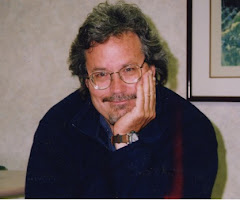
I'm shipping Bob Dylan's latest CD, TELL TALE SIGNS, to my son Colin in Korea for Christmas. Other than being unable to get the celophane back on, he'll never know that I tore into it as soon as it arrived to see what goodies Dylan had for us. This is his eighth volume of the so-called Bootleg Series.
I haven't been disappointed. If you are a Dylan fan at all, there are gems in here that you will find deeply satisfying. I am again in awe of this man's surpassing talent as a songwriter. The booklet that comes along with it, largely written by Dylan's old friend "Ratso" Sloman, provides a nice overview of his career, with little gems thrown in from the personal experience of Ratso. He had once been invited to sit in with Dylan, listening to the final cut of one of his albums. Sloman got upset because "Blind Willie McTell" hadn't been included, a tribute to the blues legend.
"But Bob just put his hand on my shoulder. 'Aw, Ratso, don't get so excited,' he said. 'It's just an album. I've made thirty of them.'"Listening to Dylan in these latter days, it is clear he has immersed himself in old Americana and its music.
"Those old songs are my lexicon and my prayer book. You can find all my philosophy in those old songs. Hank Williams singing 'I Saw The Light' or all the Luke The Drifter songs. That would be pretty close to my religion. The rabbis, priests, and ministers all do very well. But my belief system is more rugged and comes more from out of the old spiritual songs than from any of the established religious attempts to overcome the devil."Included on this double CD are a few personal gems. It has two renditions of the recent but ageless tune MISSISIPPI. Sloman comments, "The song is so great, I could listen to a whole album of various takes of it." I could, too.
It also includes a previously unreleased Robert Johnson tune, "32-20". You hear Dylan finger picking and soloing:
"Oh, baby, where you stay last night? You got your hair all tangled and you ain't talkin' right." "I got a .38 special but I think it's much too light..."
Classic.
Finally, included is the cut 'CROSS THE GREEN MOUNTAIN, from the soundtrack of the Ted Turner-underwritten Gods and Generals. Dylan had been asked to write the song for the movie, and spent weeks in the NY Public Library researching the war. He manages to capture a wonderful sense of necessity, regret, and sadness.







Think of it this way. You conduct an experiment. After you conduct the experiment, you find out that (a) some of your instruments were either miscalibrated, defective or improperly located, (b) external factors that you did not take into consideration or measure at the time the experiment was running have affected your measurements, (c) some of the measurements during the experiment were not recorded, (d) you used different instruments to record measurements over different time periods at different locations during the experiment. You find all of this out AFTER you have been running the experiment for many years. Then, instead of throwing out the data as hopelessly compromised and starting the experiment over with these factors corrected, you (a) do a study estimating how miscalibrated, how defective and how improperly located your instruments were and apply adjustments to all past data to “correct” the improper reading, (b) you do a study to estimate the effect of the external factors at the time you discover the problem and apply adjustments to all past data to “correct” the effects of the external factors even though you have no idea what the effect of the external factor actually was for a given instrument at the time the data was recorded, because you only measured the effect years later and then at only some locations, (c) you “fill in” any missing data using data from other instruments and/or from other measurements by the same instrument, (d) you do another study to determine how best to deal with measurements from different instruments over different time periods and at different locations and apply adjustments to all past data to “correct” for differences between readings from different instruments over different time periods at different locations. Then you continue running the experiment, while you continue applying all of your adjustments on an ongoing basis to all past data as new measurements are recorded. Finally, you believe that all of your data has been meticulously recorded with great accuracy and any uncertainties are minimal. Then you proceed to use the results of your experiment to justify changing policies for the entire world at a cost of many trillions of dollars, with the unerring belief that your experimental data is completely reliable.